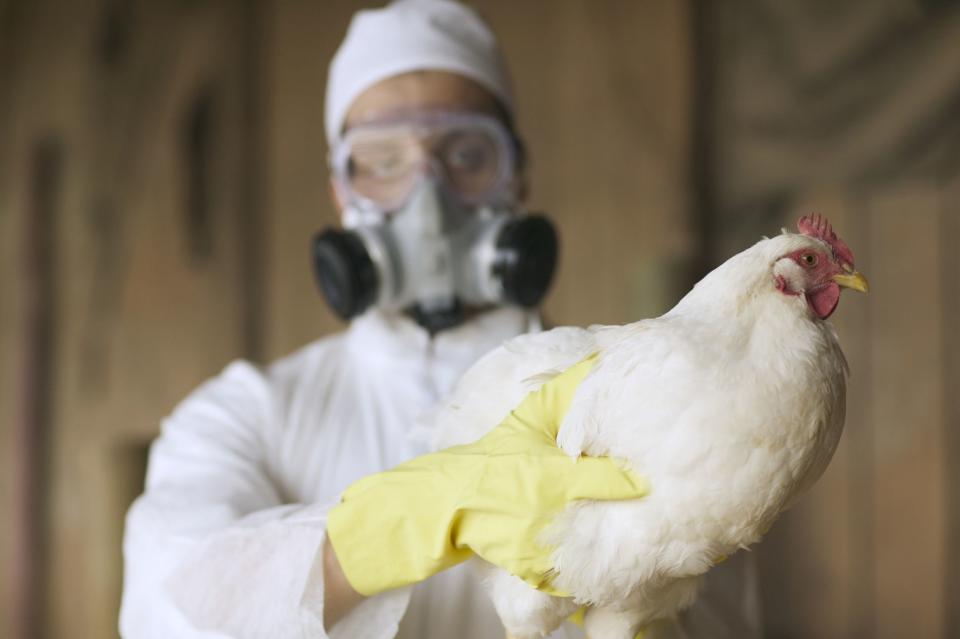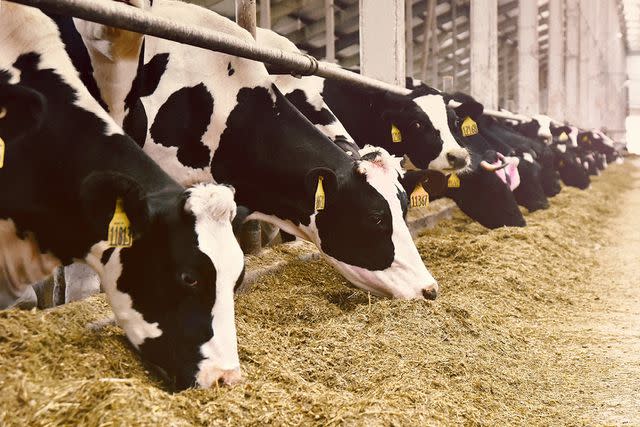World Health Organization Expresses 'Enormous Concern' About Bird Flu Spreading to Humans
The health agency is warning of the current spread of the bird flu, which has an “extremely high” mortality rate in humans

Peter Garrard Beck / Getty Images
Stock image of person holding chickenThe World Health Organization is expressing “enormous concern” about the spread of the bird flu (highly pathogenic avian influenza, HPAI).
On April 18, Dr. Jeremy Farrar — WHO’s chief scientist — said the current outbreak, which began in 2020 and reached the United States in 2022, is a “significant public health concern” as infections are spreading among mammals, stressing that there is an “extremely high” mortality rate in humans.
“H5N1 is (an) influenza infection, predominantly started in poultry and ducks and has spread effectively over the course of the last one or two years to become a global zoonotic – animal – pandemic,” he said, according to a United Nations report.
“The great concern, of course, is that in doing so and infecting ducks and chickens — but now increasingly mammals — that virus now evolves and develops the ability to infect humans,” he added. “And then critically, the ability to go from human-to-human transmission.”
There is currently no record of the bird flu spreading among humans. However, health officials are more cautious after the United States reported that the disease was detected in dairy cows for the first time.
“This is a huge concern and I think we have to … make sure that if H5N1 did come across to humans with human-to-human transmission, that we were in a position to immediately respond with access equitably to vaccines, therapeutics and diagnostics,” Farrar said.
Related: Texas Resident Contracts Bird Flu from Infected Dairy Cows

Never miss a story — sign up for PEOPLE's free daily newsletter to stay up-to-date on the best of what PEOPLE has to offer, from celebrity news to compelling human interest stories.
Back in April 2022, the United States reported its first human case of bird flu after an inmate at a Colorado prison contracted the virus after direct exposure to infected poultry.
In March 2024, a Texas resident contracted the bird flu after direct exposure to infected dairy cattle. At the time, the U.S. Department of Agriculture's Animal and Plant Health Inspection Service confirmed that the virus was detected in cows in Texas, Kansas and Michigan, revealing that the virus may be spread between cattle. Preliminary testing reportedly suggests that herds in New Mexico and Idaho may also be infected.
The USDA, FDA and CDC said there is currently no concern about the safety of the commercial milk supply, vowing to monitor the affected cattle and unpasteurized milk samples.
According to experts, infected birds shed flu viruses in their saliva, mucous, and feces. The HPAI has been found in commercial and backyard farms in 48 states, the U.S. Department of Agriculture reports.
For more People news, make sure to sign up for our newsletter!
Read the original article on People.

 Yahoo News
Yahoo News 
